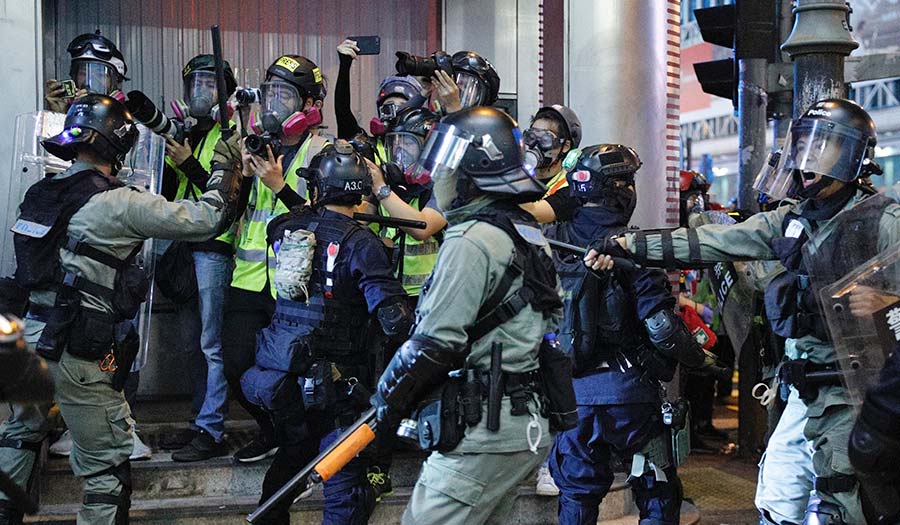






Yet Beijing stopped short of a forceful intervention. “We believe the [Hong Kong] government has the capability to calm down the current situation,” a deputy commissioner of the foreign ministry office in the city said.
Even as Communist leaders celebrated 70 years in power on October 1, they stood by as protests escalated after a teenager was shot by a Hong Kong police officer.
On the other hand, many democracy-loving residents of Hong Kong see their city as a “capitalist enclave in a Communist empire” (as Time reported) that is preparing to take over. The city, once under the British crown, was returned to China in 1997 under a “one country, two systems” framework, which promises certain democratic rights not afforded on the mainland. These concessions are slated to remain in place until 2047.
In recent years, however, some residents have accused Beijing of steadily eroding these special freedoms. They went so far as to stage a demonstration in front of the U.S. embassy demanding Washington’s intervention.
Consequently, Beijing has slammed the protests as efforts by criminals to split the territory from China, backed by what it said were hostile foreigners.
seeking foreign intervention, suggesting that would only further complicate Hong Kong’s cause.
For all its viewpoints, the city’s upheaval did have a definite starting point.
The protests began in June against legislation pushed by the city’s leader, Carrie Lam, that would have allowed criminal suspects to be sent to mainland China for trial. Mrs. Lam, who was elected as the city’s chief executive by a pro-Beijing committee of Hong Kong elites, has come under withering criticism for pushing the extradition bill. Many in Hong Kong saw the bill as a glaring example of the city’s eroding autonomy.
This pushed demonstrators clad with black T-shirts, masks and hard helmets to break into the city’s legislature building on the anniversary of Hong Kong’s handover to China on July 1. There they spray-painted walls and furniture with slogans like: “Hong Kong is not China, not yet.” Across the city, the activists infiltrated government offices and defaced portraits of the city’s leaders.
Since then, clashes with police have become increasingly violent as the demands evolved into wider calls for democracy.
Despite the uncertainties on how to handle the situation, it is clear Hong Kong has become a battleground between dichotomies—between capitalism and communism, democratic liberties and authoritarian stability, and—arguably—the United States and China.
Ultimately, many fear Hong Kong is the clearest example of a resurgent Communist China and a possible relapse into Cold War-type thinking.






